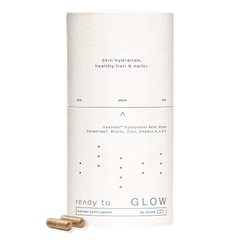Importance of a Good Night’s Sleep

In our busy lives, we often sacrifice sleep and discount the importance of a full 8 hours a night. However, scientific research consistently underscores the profound impact that quality sleep has on our overall health and well-being. Let's delve into the science behind the sweet dreams and understand why prioritizing sleep is not just a luxury but a necessity.
Firstly, sleep induces physical restoration and healing. Scientific studies, such as those published in the journal Cell, highlight the critical role of sleep in physical restoration and healing. During the various stages of sleep, the body engages in repair mechanisms, releasing growth hormones, and fortifying the immune system. The article "Sleep and Immune Function" by Dr. Luciana Besedovsky and colleagues sheds light on the intricate relationship between sleep and immune response.
Secondly, sleep also enhances cognitive function and memory consolidation. A variety of research, including studies featured in the Journal of Neuroscience, emphasizes the link between sleep and cognitive function. The article "Sleep, Learning, and Memory" by Matthew P. Walker delves into the mechanisms through which sleep enhances learning and memory consolidation. Sleep, particularly REM (Rapid Eye Movement) sleep, plays a crucial role in solidifying new information and optimizing brain function.
Third, sleep has an important impact on emotional well-being and mental health. In a study entitled "Sleep and Mental Health" by Michael W. Otto et al, published in the Harvard Review of Psychiatry, research demonstrates the bidirectional relationship between sleep disturbances and mental health disorders, emphasizing the role of sleep in emotional regulation.
Lastly, sleep helps manage hormonal balance and weight management. Hormones play a key role in regulating various bodily functions, and sleep has a direct impact on hormonal balance. The article "Sleep Loss Results in an Elevation of Cortisol Levels the Next Evening" by Alexandros N. Vgontzas and colleagues, published in the Sleep journal, discusses how sleep deprivation can disrupt cortisol levels, influencing appetite and potentially leading to weight gain.
Scientific evidence overwhelmingly supports the notion that a good night's sleep is not a luxury but a fundamental requirement for our well-being. From physical restoration and cognitive function to emotional resilience and hormonal balance, sleep plays a multifaceted role in shaping our health. By understanding and appreciating the science behind quality sleep, we can make informed choices to prioritize this essential aspect of our daily lives, paving the way for a healthier and more fulfilling existence.
Kate Ong
Kate is a student at the University of Pennsylvania studying Economics and English. She is originally from the Philippines and joined the Ready To team in 2023. She is passionate about transparency and ingredient traceability.
DATE
May 10, 2024No products found in this collection.







